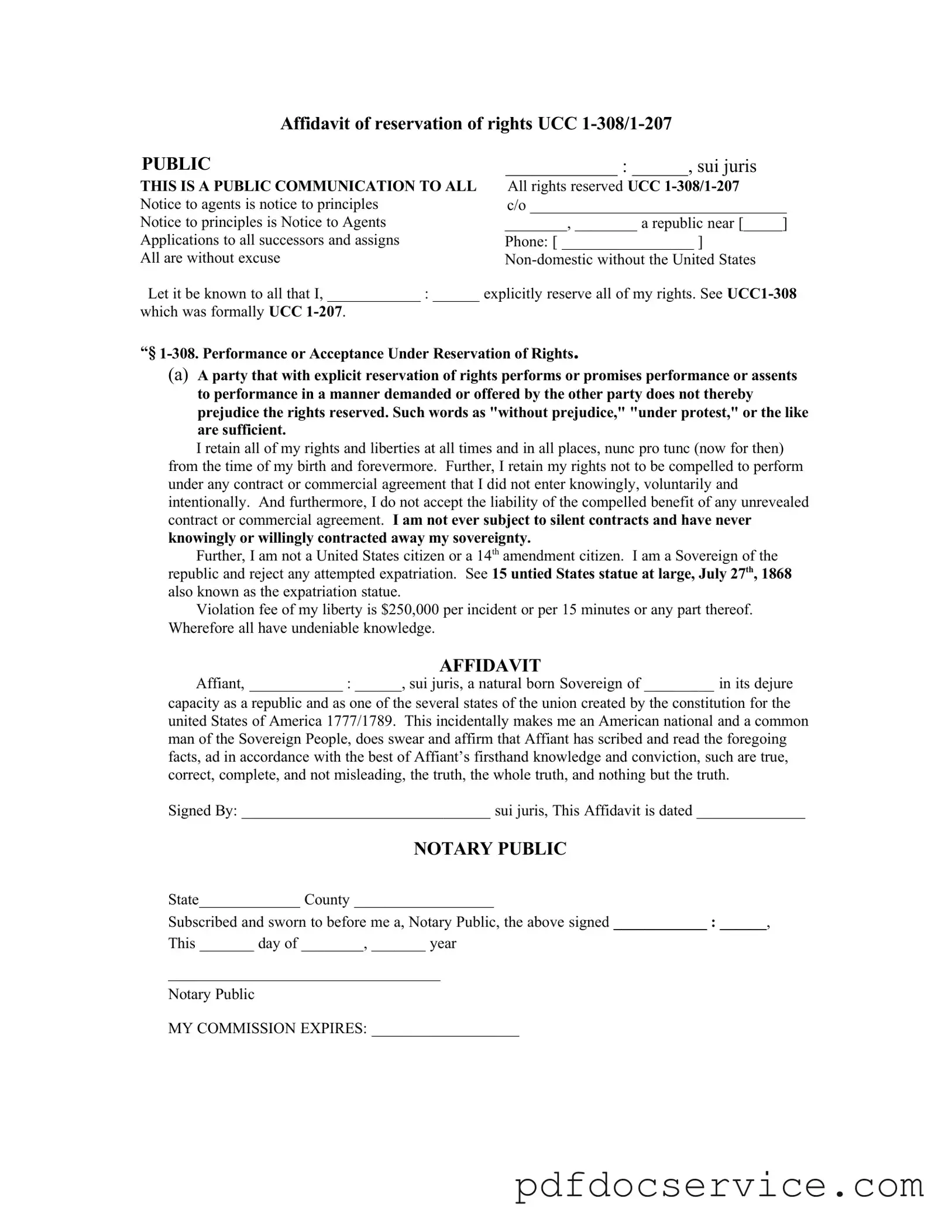Fill Your Ucc 1 308 Form
The UCC 1-308 form, also known as the Affidavit of Reservation of Rights, serves as a formal declaration by individuals asserting their rights under the Uniform Commercial Code. This document allows a party to perform or accept performance while explicitly reserving their rights, ensuring they do not unintentionally waive any legal protections. By utilizing this form, individuals can communicate their intent to retain sovereignty and avoid being bound by contracts they did not knowingly enter into.
Open Ucc 1 308 Editor

Fill Your Ucc 1 308 Form
Open Ucc 1 308 Editor

Open Ucc 1 308 Editor
or
Get Ucc 1 308 PDF
Finish the form now and be done
Finish Ucc 1 308 online using simple edit, save, and download steps.